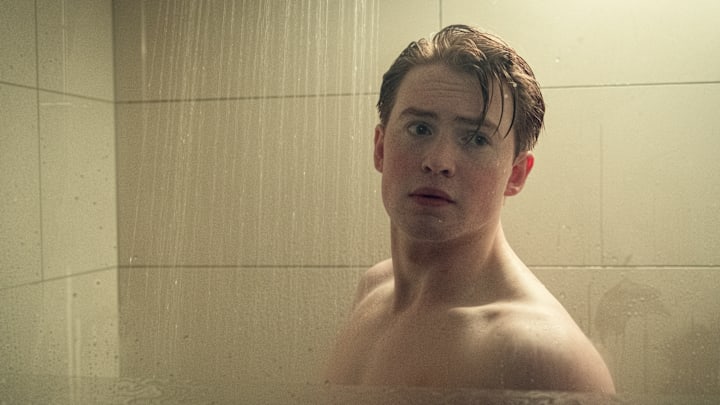A new season of Heartstopper has arrived on Netflix! The third season of the Emmy Award-winning and fan-adored teen drama series premiered on Oct. 3, and it's by far the most gripping season yet. As the cast of characters continue to quickly grow up and mature, so does the show.
Heartstopper season 3 dives headfirst into some of the most boundary-pushing but important topics yet, such as mental health and sex. The series has always been a source of education for its younger viewers as they move through the world. This time around, as fans of Alice Oseman's book series know, the lessons learned through the series can be a bit tough to watch at times.
Because the season covers Charlie's mental health struggles and the characters exploring their sexualities in physical ways, parents and viewers alike will want to know what to expect from season 3. The episodes feature sensitive topics that can be triggering, in addition to more mature conversations that are inappropriate for younger viewers. Here's a guide to season 3's subject matter!
Trigger warning: This post mentions instances of self harm and eating disorders.

Heartstopper season 3 content and trigger warnings
According to the show's official page on Netflix, Heartstopper season 3 has been rated TV-14 for language, self-harm, sex, and suggestive dialogue. While the series has previously competed for (and won) awards in the children's and family programming categories, the third season definitely veers the furtherest away from family programming, aligning more closely with straightforward teen content.
Sex and nudity
As previously hinted at during promotional interviews and the trailer, Heartstopper season 3 features frank conversations about sex and the characters engaging in sexual activity. As usual with the series, there is a lot of kissing. While there are no explicit sex scenes at all, there are suggestive sequences with teen characters in bed together.
In one scene, a male character touches a female character's chest over her shirt. Other sequences involve two male characters under covers, and it's implied that they are having sex. There are conversations that refer to sexual activity and feature characters purchasing condoms and lube. During a sexual education class in school, the characters put a condom on a cucumber.
The series also doesn't feature any nudity whatsoever beyond shirtless male characters. There's a sequence with Kit Connor as Nick in the shower, though nothing above his chest and shoulders is shown. Outside of the sexual scenes featuring shirtless male characters, there's nothing suggestive about the other sequences taking place at the beach or in the pool.
Language and drinking
The language featured in Heartstopper season 3 is more heightened than in previous seasons, with a handful of instances of profanity. There are at least two strong uses of "f-ck" and another use of the word "sh-t."
Beyond profanity, language also includes conversations about mature topics that aren't entirely appropriate for younger audience members. Season 3 again also features instances of underage drinking in multiple party scenes.
Potential trigger warnings
The first half of season 3 in particular focuses on Charlie's struggles with mental health and his eating disorder. Scenes that depict these struggles can be difficult to watch. Charlie also discusses his history of self-harm, which is shown with scars on his arm.
During the season, Charlie enters a treatment facility and talks openly with therapists and professionals. Depression, anxiety, panic attacks, transphobia, grief, and more are also spoken about and shown throughout the season. These aspects of the story can be upsetting to some viewers. Please take caution before watching.
If you or someone you know have concerns about an eating disorder and need to reach out for resources, call the ANAD Helpline at (888)-375-7767 or online at ANAD.org. You can also reach out to the National Alliance for Eating Disorders at (866) 662-1235.
Watch Heartstopper only on Netflix!
